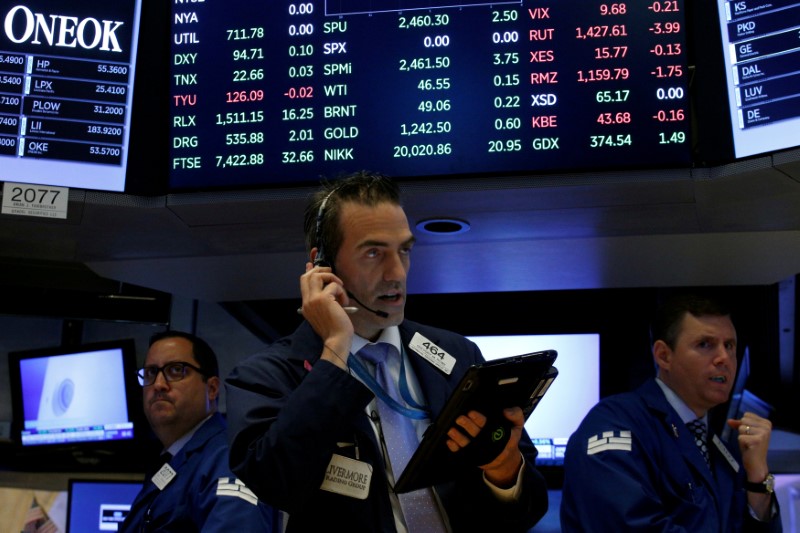By Trevor Hunnicutt
NEW YORK (Reuters) - Momentum for domestic U.S. stock funds waned during the latest week, with investors pulling cash from those products for a sixth week out of the last seven, Investment Company Institute (ICI) data showed on Wednesday.
The funds posted $3.9 billion in withdrawals during the week ended Aug. 2, the trade group said, even as U.S. stocks steamed higher. The S&P 500 is on pace to deliver double-digit percent returns for seventh year in the last decade.
Investors say that rise has left U.S. stocks richly valued and that they have been moving to taxable bonds and international stocks. Each of those categories had a 35th straight week of inflows, according to ICI.
Taxable bonds added $6.1 billion, while world stock funds attracted $4.2 billion.
Bond funds sold $203 billion in shares during the first half of 2017, compared to $136 billion in stocks. Of that, domestic equities took in just $4.3 billion, ICI data showed.
Phil Bak, chief executive at ACSI Funds, said the growth in index funds that own big stakes in technology companies like Facebook Inc (NASDAQ:FB) and Apple Inc (NASDAQ:AAPL) has exacerbated fears of a top-heavy market.
"A lot of people feel that trade will start to unwind," said Bak, whose firm is based in Ann Arbor, Michigan.
But stocks are not trading in tandem, meaning there are relative winners and losers and in the market. A CBOE S&P 500 Implied Correlation Index that uses options to measure how much markets expect stock prices to move together is trading at 31.4, compared to 57.7 on the day of the U.S. election in November, a turning point for markets.
S&P 500 earnings for the second quarter rose an estimated 12 percent, according to Thomson Reuters I/B/E/S. But in recent days some large companies turned in disappointing results, including airlines, and the U.S. Food and Drug Administration announced it wants to reduce nicotine levels in cigarettes, hitting Altria Group's shares.
Bak said a lack of correlations between stocks creates a good environment for investors who pick equities beyond those held in the highest proportion by indexes such as the S&P 500.

"We think it's a pretty good environment to be in stocks," he said.